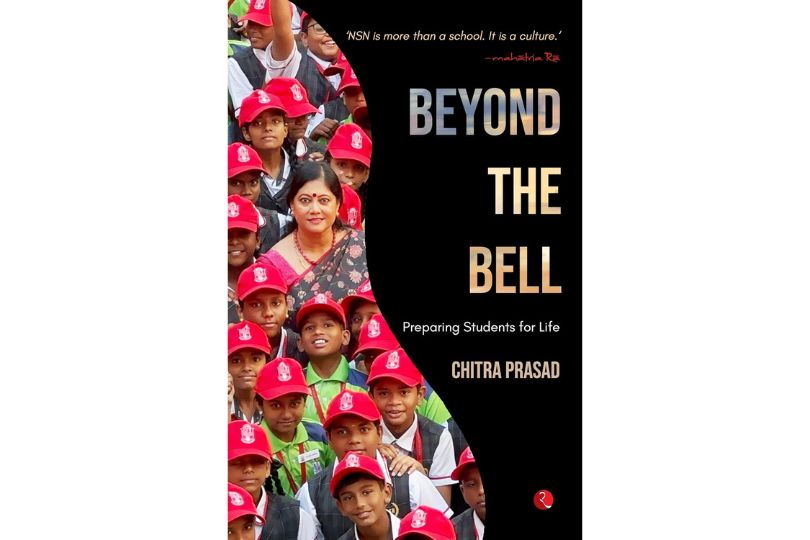Interview with Stuti Gupta, Author of “Vahana: Vehicles of the Gods”
Discover the author interview with Stuti Gupta, as she delves into 'Vahana: Vehicles of the Gods' on Frontliston Nov 08, 2023
.jpg)
Stuti Gupta has a rich experience of over seventeen years in the publishing industry in the
editorial capacity. Having worked on close to a thousand books in her career, she has had the
pleasure of working with bestselling authors, as well as debut authors who went forth and
charmed the world with their stories. She is currently the Chief Editor at Srishti Publishers,
one of the leading publishing houses in India, and spearheads a dynamic editorial team to
make books better.
Frontlist: Your book, 'Vahana: Mounts of the Gods,' takes a unique approach to exploring Hindu deities and their vahanas. Can you share the backstory or moment of inspiration that sparked the idea of focusing on the stories of how gods found their mounts for your book?
Stuti Gupta: My journey of writing runs parallel to my motherhood experience, so it all started with my super-curious son. Moving a step forth, when I started interacting with school kids at a larger scale, their questions would be cute, intriguing and sometimes rather tough. They would often ask me things like Why does Ganesh ji travel on a mouse? He’s a god! Or something as simple as Which car does Shiv ji drive?
I realized that their curiosity stems from their fascination with these gods and goddesses, and they want to know more about their favorite deities. That’s how the idea came to be.
Frontlist: How did you come to discover these stories and learn about vahanas? Was it something you were familiar with from childhood or a recent study area? Additionally, do you have a favorite story among those featured in your book?
Stuti: I have been lucky that I was exposed to a rich tradition of oral stories through my parents. Especially my father, who always had some folk tale, some couplet on his fingertips at every occasion. I know some popular stories through them. I dug deeper into mythology during my research work on the Indian epics, and unraveled these fantastic stories. I love the story of how Lakshmi maa came to get the owl as her mount. It’s a mix of a lot of emotions and lessons, and thus, my personal favorite.
Frontlist: Your book includes beautiful illustrations and various activities related to the stories. Can you share how you came up with these elements and how you believe they enhance the overall reading experience, especially for children?
Stuti: Children have such a short concentration span these days that if you don’t keep them engaged, their mind and attention will wander. And activity-based learning has been proven to be most efficient now. I just combined my passion to tell stories with the beauty of illustrations by Ishan Trivedi. When we created these activities, we also took ideas from educators to understand what increases memory retention in young readers. What you see in the pages of this book is an earnest attempt by multiple people to make learning fun.
I have noticed that when you engage in an activity with young readers, their memory retention of it is deeper, they don’t just memorize, but actually learn. That’s how it is entertaining and educational, both.
Plus, activities can be done by the children along with their parents, so it also cultivates the parent-child bond over a period of time.
Frontlist: Your book beautifully conveys critical societal issues such as body shaming and racism in the market, highlighting that such behaviors are not okay. Can you share your intentions behind including these themes in your storytelling? Additionally, do you believe it's important to address these topics with children from a young age?
Stuti: Children, I personally feel, are born with a natural instinct that’s neutral. They don’t disregard others’ opinions, shame others, or criticize – they are all accepting. In conditioning them as they grow, we as caregivers falter and introduce ideas that teach comparison. Whether it is academic, bodily or otherwise. Which is why knowledge can be their only true weapon to understand the world around them and formulate opinions. I try to inculcate these qualities in them through my stories. Compassion, gratitude, empathy – they can be strong tools in one’s personality.
Age is not even a marker to introduce these concepts or lessons. They are already born with this understanding; we just need to channelize it in the right way. The earlier we start, the more long-lasting and deep it’ll be.
Frontlist: There are certain myths about animals, such as black cats being considered unlucky that are dispelled as they are depicted as Devi's vahanas in your book. Do you aim to challenge and potentially remove such stigmas through your book while educating and raising awareness among young children?
Stuti: Every individual, whether a child or an adult, needs to feed their faith in a way that their doubts are starved to death. Such stigmas only have a way of strengthening our doubts, which I am not a great fan of. I feel knowledge and practical wisdom are the answer to most things around us. And cultivating a rational way of life will take these kids a long way.
When you tell the child ‘this is wrong; don’t do it’, they will most definitely do it! So I work on feeding knowledge into them so that they are able to judge what’s right or wrong, good or bad, on their own.
Frontlist: It's evident that there is a valuable lesson in each story that not only helps readers become better individuals but also reinforces the belief that goodness ultimately triumphs over evil. Do you believe that stories with such moral lessons can significantly contribute to helping children become better individuals and make positive life choices?
Stuti: I am sure we all have noticed how negative thoughts have invaded our minds and lives post-Covid. It is of utmost importance to strengthen their personalities to bank on positivity. And who have we been learning from for thousands of years now? Gods! Children love stories of their favorite gods and when they hear that their little god-friend also fought their way through a huge challenge, it is motivating, to say the least. And lessons are all around us – in things, people, places and experiences. When they read about these experiences in stories, they are able to practically implement it in their lives with ease.
So many times, I have learnt invaluable lessons from children: resilience, positivity, never-say-die spirit, and happiness – the most precious of them all. Through my stories, I try to give as much back as possible.



.jpg)






.jpg)

.jpg)

.jpg)

.jpg)
.jpg)










Sorry! No comment found for this post.